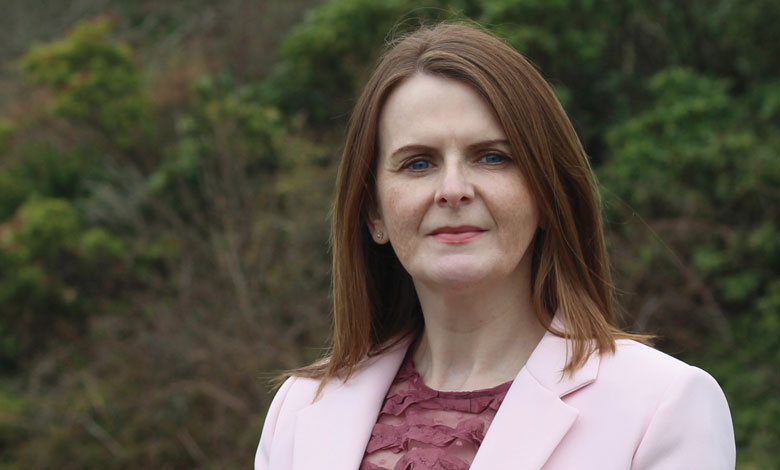
Bord Gáis Energy’s Dave Kirwan; Driving Ireland’s green energy future through collaboration and investment
2nd June 2025
Minister Darragh O’Brien TD; Energy transition a ‘momentous opportunity’
2nd June 2025Minister for the Economy, Caoimhe Archibald MLA; Accelerating the just transition

Credit: Sinn Féin
In December 2021, the Energy Strategy – Path to Net Zero Energy – set a course for the region to end its overreliance on imported fossil fuels and move towards embracing the economic opportunities of becoming self-sufficient in affordable, renewable energy.
The journey to date has seen us reach several significant milestones, as we seek to move away from our reliance on outdated energy solutions. However, with less than five years to 2030, we recognise the urgency to accelerate the delivery of a just transition.
In recent years, the need to move away from our long-standing overreliance on fossil fuels has been highlighted by global market volatilities. The increase in extreme weather events – such as Storm Éowyn – emphasise the need to increase our collective efforts to mitigate climate change and increase the resilience of our energy system.
By 2030, we must ensure 80 per cent of electricity consumption comes from renewable sources; we must deliver energy savings of 25 per cent from buildings and industry; and double the size of our low carbon and renewable energy economy to a turnover of more than £2 billion.
Recently, my department published the Energy Strategy Action Plan Report 2024 and Energy Strategy Action Plan 2025, which, taken together, highlight the progress made to date, and provides a roadmap for our ambitions for the year ahead. Delivery on 2030 targets and beyond will require cross-government and multi-stakeholder action and my department is committed to driving this change.
Key to the strategic priority of Accelerating the Delivery of Affordable Renewable Energy will be the publication of the Final Scheme Design for the Renewable Electricity Support Scheme to enable the first auction in 2026, and the progress of a draft bill on Offshore Renewable Energy Installations in 2025.
In February 2025, I launched the Offshore Renewable Energy Action Plan (OREAP) consultation, the first steps towards identifying sustainable areas for potential development of offshore renewable energy. When progressed, this plan could be the region’s most ambitious energy infrastructure plan in a generation. This will be a fundamental driver of environmental improvements, increased renewable electricity production, and enhancing our economic productivity and opportunities.
The publication of a smart meter design plan will help enable an Electricity Grid Ready to Support Delivery of the 80 per cent Renewable Electricity Target by 2030.
As we deliver on our ambitions for net zero energy, it is clear that this transition must also deliver for citizens and communities. The inclusion of an all-of-government approach to deliver a plan to produce community benefit through a community energy pathfinder project, alongside a feasibility assessment for a local energy hub to support communities and local businesses in the 2025 Action Plan, is an important step.
Reaching the 2030 targets will undoubtedly require an acceleration of our collective efforts. The 2025 Action Plan includes a commitment to review the Energy Strategy in 2025, ensuring that our actions are better aligned to achieving our 2030 targets, and preparing to meet the challenge of net zero by 2050.
A renewed focus on delivery of our 2030 targets has a critical role to play in my department’s four key economic priorities of delivering more good jobs; addressing regional imbalance; increasing productivity; and delivering decarbonisation.
The decarbonisation of energy represents the greatest economic opportunity afforded to this island for the current generation and the multiple generations that follow.
In seeking to maximise the abundance of renewable resources available right across the island, partnership and collaboration is critical to ensuring that we deliver the greatest economic, environmental and societal benefits.
We must build on our shared opportunities, such as the Single Electricity Market, and seek to leverage the innovation that exists in academia, industry, and the public sector both north and south to deliver solutions that will improve the lives of everyone on the island.
Grasping the economic opportunity presented by the transition to net zero also underpins the Executive’s recently-agreed Programme for Government commitment to “grow a globally competitive and sustainable economy”.
However, progress cannot be made in isolation. My department and my Executive colleagues are committed to establishing a robust regulatory environment, with fit for purpose modern legislation to ensure both public and private stakeholders can play their part in the energy transition.
We must also ensure that the cost of delivering emission reductions must not fall disproportionately on vulnerable consumers. The only way this can be achieved is through collaboration with communities, businesses, local government, statutory partners, and all of those who have an interest in creating an inclusive and equitable path towards a sustainable future.
Minister for the Economy, Caoimhe Archibald MLA
